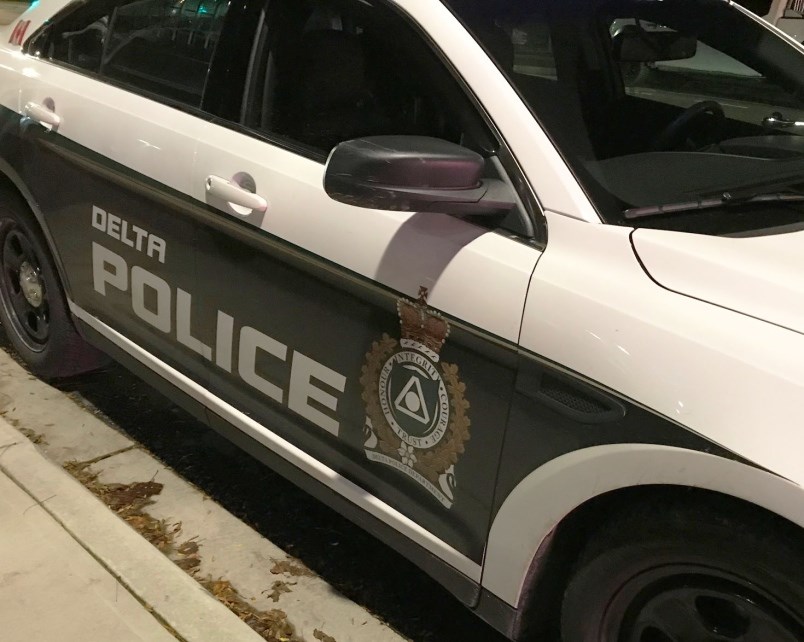Delta Police are seeing a concerning trend of youths carrying weapons.
That's what the Delta Police Board was told at a recent meeting during discussion on the city's yearly crime statistics, which found that overall person offences such as uttering threats to criminal harassment, including online, were up.
When it comes to youth and cybercrime issues, outreach and teaching prevention are seen as key, the board was told.
However, Deputy Chief Harj Sidhu also told the board the department is seeing a trend of bear spray being used by youth in disputes, while “knives are starting to become a bit of a problem.”
“What we're hearing is youths are carrying them for protection because they're worried about being bullied or jumped,” Sidhu said.
He added the department's school liaison program (SLO) is working on the issue.
Following a stabbing involving a group of youths at Annieville Park this week, which resulted in a 16-year-old taken to hospital with serious but non-life-threatening injuries, Chief Neil Dubord said, “It is troubling a dispute has escalated to this level of violence.”
Several youths involved in the attack were located by police and taken into custody. The potential suspects were students who went to a nearby high school with the victim.
During the police board's Jan. 18 discussion on the city's crime severity index, the board was told that establishing positive connection's is part of the DPD's youth strategy, including strong partnerships with the Delta School District and community groups.
As far as the department's SLO program, all officers in the department receive the same training as the liaison officers to deal with young people.
Late last year, Human Rights Commissioner Kasari Govender issued a letter to the B.C. School Trustees Association (BCSTA) reiterating her recommendation that the use of SLOs be ended by all school districts, unless and until they can demonstrate an evidence-based need for them that cannot be met through other services.
Mayor George Harvie, who chairs the police board, in response told the Optimist, that during last year’s municipal election campaign, residents overwhelmingly conveyed support for the SLO program, which began in the early 1970s.
“In no way do I support knee-jerking our school liaison officers out of the classroom. They’re absolutely necessary. It’s vital for parents to know that they’re there, including for any safety concerns. A lot of the information I’ve read why some are against it is just an agenda some have and I’m totally against it and don’t want to get involved in,” he said.
Delta Police spokesperson A/Insp. James Sandberg at the time also said the Delta SLO program has a long history of success.
Delta Board of Education chair Val Windsor also said that the board would be discussing the letter sent to the BCSTA.



